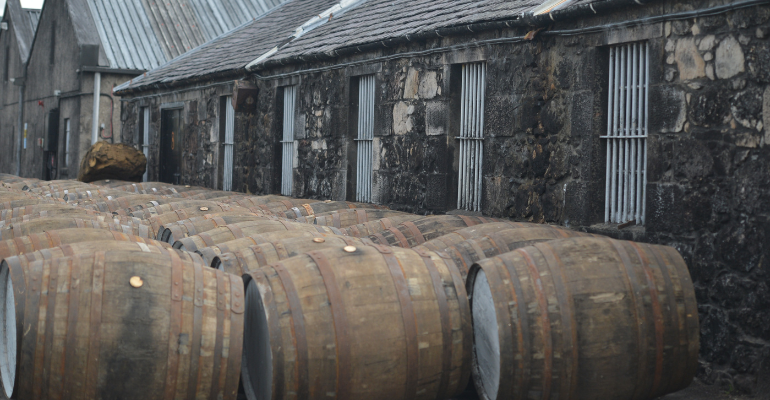Are Whisky Casks Capital Gains Tax Free?
There are pros and cons to whisky cask investment. Explore the considerations of whisky as an alternative asset.
Cask Trade
Table of contents
- Are Whisky Casks Capital Gains Tax Free?
- What are the pros of whisky cask investment?
- Are there any cons of whisky cask investment?
Are Whisky Casks Capital Gains Tax Free?
Whisky cask ownership can be a form of alternative investment. Cask investment is the process of buying a cask of whisky and holding it for a number of years to allow the liquid to age and mature. Over time the value of the liquid increases, meaning it may be sold at a later date for profit.
At the moment, this profit is capital gains tax free. This means you won’t pay capital gains tax on money made at the point of sale, providing your cask doesn’t leave a bonded warehouse over the duration of time that you own it. Those living outside of the UK should check their local tax rules.

What are the pros of whisky cask investment?
Simple storage
Storage wise, whisky casks are held in bonded warehouses in Scotland, so there is no need to store the whisky cask yourself. While there is a fee, this tends to be around £50 a year meaning ‘extra’ costs are minimal.
Rewarding process
For those who love their whisky, the ownership process can be interesting and enjoyable. As it is a physical asset, it is possible to sample the liquid journey as it matures over the years, noting the change in taste and colour. In some cases, you may also be able to visit where your cask is stored.
Potential returns
Depending on market trends, investment potential is certainly a positive due to the natural appreciation of the liquid and historic performance of whisky casks. However, with any investment, future trends and exact results cannot be predicted. Whisky should be treated as a long term hold rather than a quick money making solution.
Are there any cons of whisky cask investment?
Deciding to invest in any alternate asset must be a well researched decision. If you are thinking about starting your cask ownership journey, it is important you understand the potentials cons or risks associated with alternate investments.
Market fluctuations
Market changes may increase or decrease the value of your cask. These fluctuations don't just impact cask value but may also impact the demand for your cask. For example, if you own a cask from a lost distillery (shut down), this may boost the demand for the cask as it is rarer and therefore higher in value. On the other hand, if you own cask of liquid that is relatively common on the market, this may negatively impact the desirability of your whisky, making it harder to sell.
Liquid loss
As the liquid matures in the cask, there is a natural evaporation process which reduces the liquid volume over time, known as the angels share. While every cask experiences this, you can risk losing too much liquid through evaporation without proper management and informed advice. As a cask is a physical asset, there is a small but rare risk of physical damage to the object which could lead to liquid loss. If investing in a cask, ensure you fully understand what your insurance policy covers.
Historic data
It is very difficult to track the value of whisky casks over time as there is no index for cask sales. This may change in the future as the whisky cask investment market matures and data is made available.
Accessibility
Finally, as the popularity of cask whisky rises, more and more companies are looking to sell casks to prospective investors. Unfortunately, there are some unreputable companies out there, potentially selling at a much higher cost or falsely advertising casks. Researching the company to buy from is of the utmost importance.
If you are looking to get involved in whisky cask ownership, our expert team are here to guide you through the process from cask selection through to exit. We have a number of guides and resources available to help you research whisky investment. Alternately, register to speak to one of our account managers who can talk you through the process of owning a whisky cask.